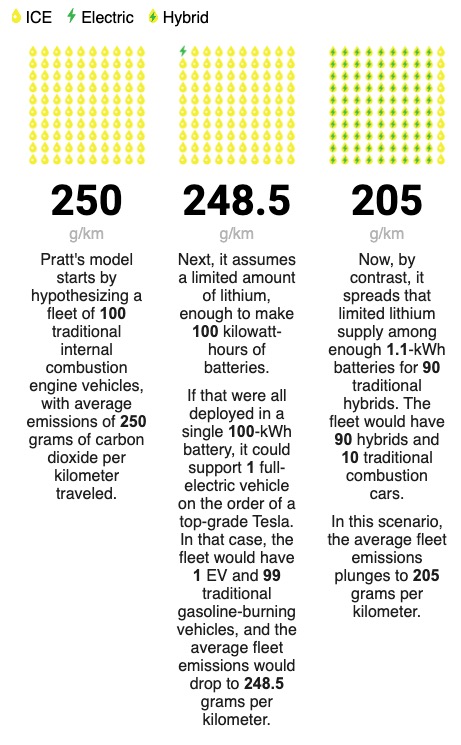Toyota Scientist Defends Hybrids, Says His Tesla Model X Battery is ‘Waste of Materials’

Image: Toyota Motor Corp. via Automotive News
In the latest of Toyota’s efforts to shift attention away from mass electric vehicle (EV) adoption, the automaker is defending itself against recent scrutiny claiming the company is dragging its feet on going all-in on EVs.
Toyota is now claiming recently presented facts and figures that a multi-pronged approach, including hybrids and other green technologies in addition to EVs, is a better way to battle global emissions, according to a report from Automotive News.
Chief Scientist Gill Pratt pitched the idea at presentations for the World Economic Forum in Davos-Klosters, Switzerland, and again in Tokyo, Japan. Pratt claims that lithium’s scarcity makes the multi-pronged approach better than recent attempts to ban gas and diesel in favor of fully-electric vehicles.
Tesla Model 3 Ends Toyota Camry’s 28-Year Sales Streak in Australia https://t.co/FqXpfFRmxV
— TeslaNorth.com (@RealTeslaNorth) January 6, 2023
“Time will show that our point of view is actually the correct one,” Pratt said at a roundtable here. “One way or the other, there will be a diversity of powertrains used throughout the world.”
In a nutshell, Pratt says Toyota is better off spreading lithium batteries among more hybrid vehicles, instead of just one vehicle using a 100 kWh battery pack, for example. He says a 100 kWh pack could spread its lithium across 90 hybrid cars, with 1.1 kWh batteries in each. This would lower the average emissions of 250 grams of carbon dioxide per kilometer traveled down to 205 grams, versus hitting 248.5 grams with just 1 EV with the 100 kWh pack and 99 gas cars.
Reports in 2021 showed that Toyota had been quietly lobbying against EVs in Washington D.C., supposedly because of interests and early investments into hydrogen fuel cells.
Pratt noted his family’s Tesla Model X with its 300-mile range put this battery scenario into question. His wife only drives less than 30 miles per day, thusly, according to the Toyota scientist, 90 per cent of the Tesla’s lithium-ion battery pack is not being used and is essentially dead weight.
“It’s an incredible waste of materials,” said Pratt. “I think what’s needed is a little bit more frankness from the OEMs, both to the public and also to policy makers.”
Still, like many automakers, Toyota is planning to pour tens of billions of dollars into EVs in the next decade, and it recently announced plans to unveil a refreshed three-year plan with a few key supplier changes.


He might have a point abut luxury vehicles wasting batteries, just look at the Humvee. But the real waster of batteries are the legacy boys who put crappy EVs on the roads a la Bolts and Leafs.